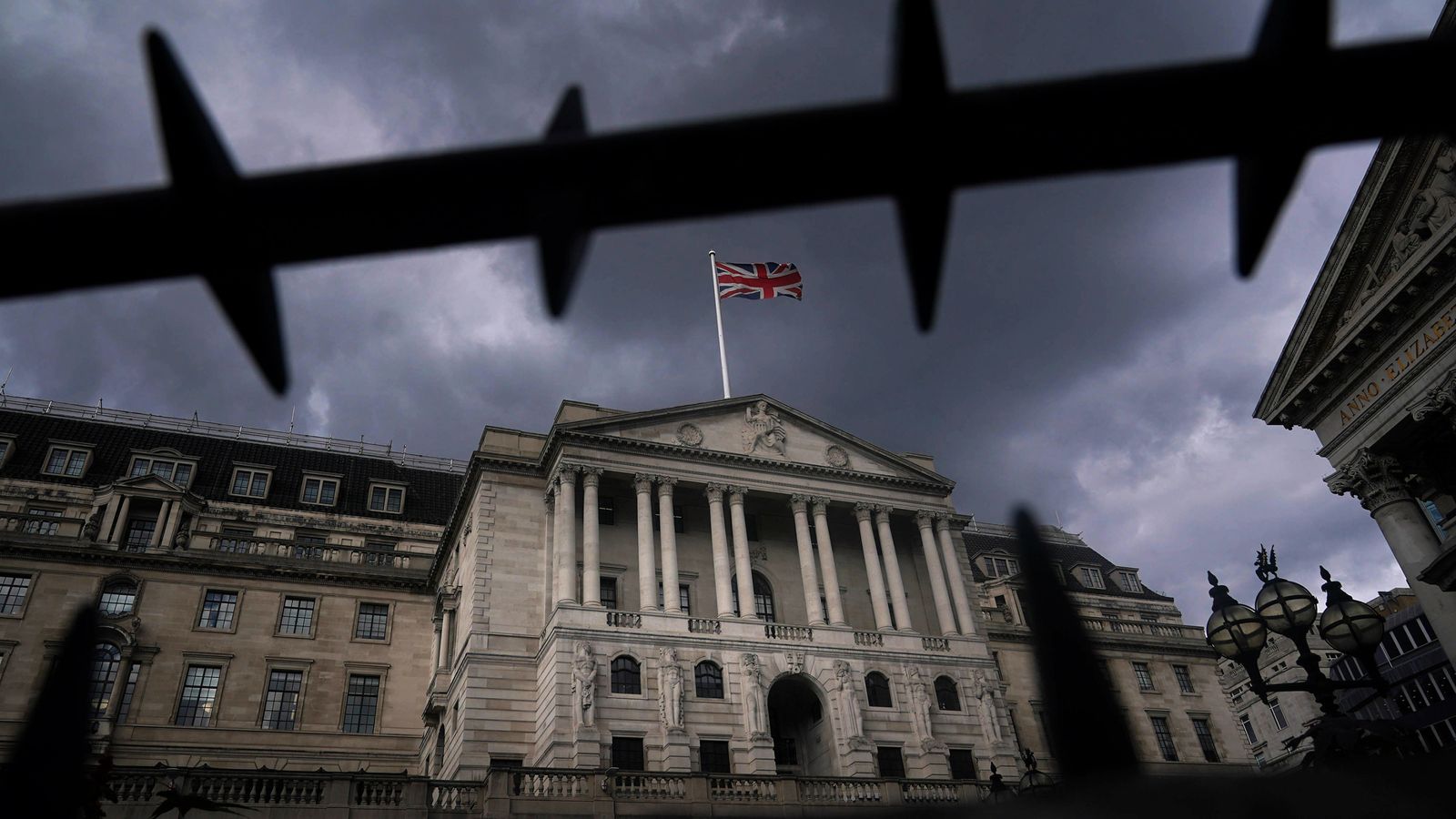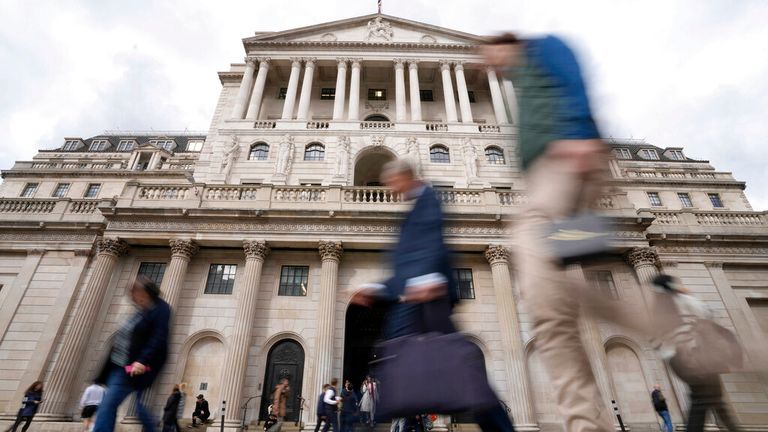Let’s start with what we do know.
The economy is now almost certainly in recession. It will not be pleasant. This is a recession which will be felt in most households’ pockets – both through the rise in energy prices and shop prices and the rise in the cost of borrowing.
And when it comes to the cost of borrowing, things are certainly getting tougher. Today the Bank of England raised its official interest rates by 0.75 percentage points, meaning if you’re on a floating rate loan tied to Bank rate the increase will be immediately reflected in your monthly repayments.
In a sense, the Bank is merely doing what most people had expected and what markets had already priced in: in other words, the current fixed rate loans out there on the market already assumed something like this happening.
Remember that point: we’ll come back to it.
So we know the economy is in recession. We know prices are very high and times are looking tough – especially if you have a mortgage which needs to be re-fixed soon. But here’s where the certainty ends and the murkiness begins.
Normally the Bank of England produces one main forecast in its Monetary Policy Report – the quarterly document in which it gives its sense of the state of the economy. But this time around it did something unusual: it produced two, and gave quite a lot of prominence to both of them.
A money market rollercoaster
Why? Well, it comes back to the fact that money markets have been on a rollercoaster recently. As you’ll recall if you’ve followed the ride, in the wake of the mini-budget, expectations for where the Bank’s interest rate was going next year leapt up to over 6%. Since Liz Truss‘s exit, those expected rates have begun to fall, to the extent that as of this week they were expecting a peak of 4.75%. That’s a big change.
And these numbers matter enormously: the higher the rates, the more households who will struggle to make their repayments and the tougher life will get for businesses, many of which will struggle to operate. So even a change of a few fractions of a percentage point will make a big difference.
Eight successive quarters of contraction
That brings us back to the Bank’s latest forecasts. It has to base those forecasts for the state of the economy off an assumption of what’s happening to those interest rates. So it typically takes a two week “snapshot” of what money markets expect for borrowing rates and then builds a forecast around it.
Normally that’s a pretty uncontroversial exercise, but not this time. Because as we all know, those rates were all over the place following the mini-budget and the ensuing gilt market meltdown.
The upshot is that the Bank’s central forecast – the one we usually look at – is particularly bad.
It involves eight successive quarters of contraction: that would be the single longest recession since comparable records began in the early 20th century – though it would be much less deep than nearly all of those downturns. It would see the economy shrink by nearly 3% and unemployment get up to 6.5%.
But here’s the thing: that forecast is based on market expectations that Bank rate would get up to 5.25% next year. And the Bank is unusually explicit today that it thinks that is very unlikely. So that recession forecast is a little bit of a chimera: it is based on a scenario which will probably not happen.
So here’s where that other forecast comes in.
The Bank produced a separate set of figures which ignore all that market mayhem and just imagine rates stay where they are, as of this afternoon, at 3% in perpetuity.
On the basis of that forecast, there is still a recession, but it is barely more than half the depth of its central forecast and doesn’t last half as long. Unemployment doesn’t peak as high. Household income isn’t quite as badly hit. It’s tough, but not awful.
More rate rises
So: is that forecast a more reliable picture of the impending months? Well, not necessarily, for two reasons.
First, the Bank said explicitly today that it thinks it will have to raise interest rates again, albeit not as high as markets were expecting a few weeks ago.
What that means is anyone’s guess, but the signal is that they might not even have to rise as high as the 4.75% markets are currently pricing in. But that does mean a slightly worse outlook.
Second, the Bank’s forecast doesn’t make any assumptions about what the government’s Autumn Statement is going to do to the economy. And given everyone expects the government to cut spending and/or raise taxes, it’s a fair assumption that that could also bear down on economic activity.
It’s complicated
So, as you can see: it’s complicated. I know that’s not especially helpful if you’re after a quick summary. But it’s a fairer reflection of where we are.
The UK is in recession, but it’s worth being a little wary of the more lurid headlines out there about how it’s the “longest in history”. The Bank is saying that’s a possibility if rates went higher (and it doesn’t currently think they will).
But there is another interesting thing going on here, which comes back to that point I made at the start – that when the Bank moves its rates it is, in a sense, reflecting what people out there in the market are expecting it to do. Those expectations matter – and the Bank can often influence them itself.
Today’s Monetary Policy Report contains some pretty heavy hints that the market has overshot its expectations about where Bank rate will go in the future. In other words, the report itself could plausibly persuade investors to notch down their expectations for where interest rates are heading next year.
If that happened, we would be left with an interesting paradox: that even as it raises interest rates even more than it has ever done since it became independent in 1997, the Bank could actually push down what markets expect that eventual peak to be.
In other words, this interest rate increase could be reducing the real-life cost of borrowing in the mortgage markets. Fixed rate loans could get cheaper as a result of today’s events, not more expensive.
Perhaps that sounds topsy-turvy, but then it’s no more weird than many of the other turns of this rollercoaster in recent weeks.

